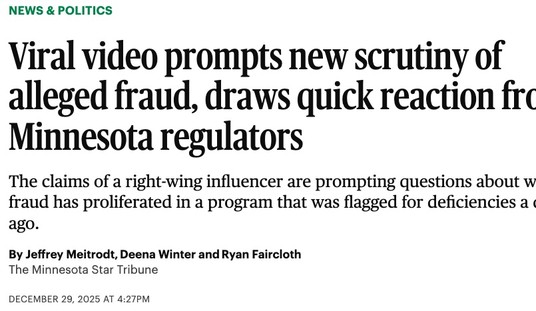Two of the rising stars in the Republican Party combined last night to deliver a vision of the future for the GOP, and to stake their claims as leaders who can deliver it. Paul Ryan introduced Marco Rubio at the Jack Kemp Leadership Award Dinner in Washington DC, and both men stressed the need to find ways to make conservative policies as well as principles relevant to all voters — just as Jack Kemp himself attempted to do. CNN reported on the remarks this morning:
The Daily Caller’s Alexis Levinson reported on both speeches, and noted that Rubio got specific as well as philosophical in his approach to middle- and working class voters:
The Florida senator identified two specific problems that he said need solving: The “American economy is not creating enough jobs,” and Americans do not have the skills necessary to do many of the jobs that are available.
In the immediate future, Rubio said, Congress and the White House need to reach an agreement to avert the fiscal cliff that includes a plan to pay down the national debt, reform entitlements like Medicare, simplify the tax code and avoid raising tax rates.
High tax rates, Rubio said, would only hurt small businesses and the middle class.
To spur economic growth, Rubio proposed decreasing “excessive regulation,” increasing domestic energy production and introducing a “predictable monetary policy.”
Rubio proposed a health care system with a Flexible Savings Account in the mold of Congress’s health plan, which “allows families to save tax free money to pay for medical bills.”
The government, Rubio said, should “expand the number of community health centers, as well as work with hospitals to find the best way to integrate them with their emergency rooms to try and get non-life threatening walk-ins to seek treatment there.”
To ensure that Americans are adequately prepared to enter the workforce, Rubio proposed “state level curriculum reform and new investment in continuing teacher training” to improve elementary and secondary schools, school choice as a means of getting kids out of failing public schools and expanded technical and vocational education.
I’ve written about the need to get specific as part of a more energetic outreach to working-class voters. These are excellent entrées to that effort. Matched with permanent organizational efforts in the cities that focus on issues to which those voters can relate, this can be a powerful direction for Republicans over the next several years.
Ryan called for a change of thinking in the GOP about how to approach policy as well as voters:
“Both parties tend to divide Americans into ‘our voters’ and ‘their voters,’” Ryan said. “But Republicans must steer far clear of that trap. We must speak to the aspirations and anxieties of every American.”
“I believe we can turn the engines of upward mobility back on, so that no one is left out from the promise of America,” he said.
Ryan said welfare reform in the 1990s reduced dependency and helped people “shape their own destiny.”
The problem now, Ryan said, is that instead of applying a similar model, “we’re still trying to measure compassion by how much we spend – not by how many people we help.”
That model is evidently not working, Ryan said, because “today, 46 million people are living in poverty.”
“We need a vision for bringing opportunity into every life – one that promotes strong families, secure livelihoods, and an equal chance for every American to fulfill their highest aspirations for themselves and their children.” …
The GOP, Ryan said, needs to work on better articulating its ideology.
“We have a compassionate vision based on ideas that work,” he said, “but sometimes we don’t do a good job of laying out that vision. We need to do better.”
Politico’s James Hohmann also noticed the level of detail in Rubio’s speech:
He sought instead to position himself as a substantive, detail-oriented senator, using the phrase “middle class” 34 times in a 30-minute speech packed with a laundry list of ideas to create jobs and opportunity. [Read the full text of Rubio’s speech.]
“Big government has never been able to create and sustain a vibrant and stable middle class,” he said.
Ryan focused on the very poor, used the word “poverty” 15 times in his own 20-minute speech. Rubio used it only once. [Read the full text of Ryan’s speech.]
“When Lyndon Johnson launched the War on Poverty in 1964, he predicted we would eliminate poverty in 35 to 50 years. Here we are, 48 years later, and poverty is winning,” the congressman said.
Hugh Hewitt points out the Catholic connection — and the Catholic approach from both men:
In addition to immigration reform, this Catholic log jam also suggests an emphasis on religious liberty, and not just in the U.S. but abroad and especially in places like Egypt where the emerging Islamist domination calls for the U.S. to insist on the protection of religious minorities as a condition of aid.
Mitt Romney did not win the Catholic vote in November, a consequence of the loss of three out of every four Latino Catholic votes.
Review Marco Rubio’s “fact sheet” for his speech last night. (Very wise to make this available online, btw. Good practice pointer for future conservative speech makers.) This is not a “social gospel” per se, but it is close to being a legislative expression of the theological values embedded in much of Catholic social teaching.
The Democrats have become fully and completely the party of big and very secular government, the GOP the party of individuals and religious faith, protected from that state. The good news is that the GOP as the young superstars. The bad news is the Demcorats have the purse strings.
The two men have gotten off to a good start. Let’s see if the rest of the GOP can follow.








Join the conversation as a VIP Member